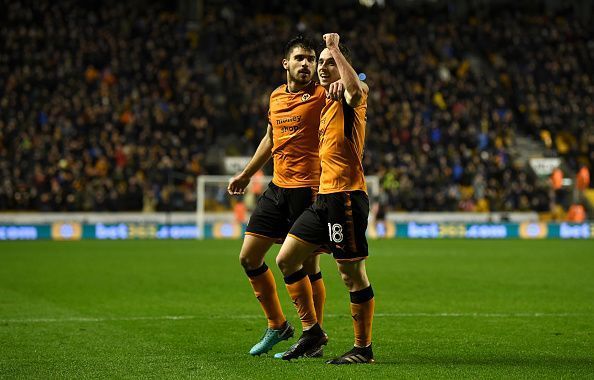
Rise of the Wolf Pack: The questions behind Wolves' push for promotion

With just 5 games to go in the EFL Championship, it’s all but confirmed that Wolverhampton Wanderers will be returning to the Premier League next season. They’re currently leading the table by a strong margin, 9 points ahead of second-place Cardiff City – who they defeated 1-0 in their most recent match - and they’re 11 points ahead of third-place Fulham.
Assuming Wolves do gain automatic promotion, which seems like a given now, 2018/19 will be the first time the Midlands club have been in the top flight since 2011/12 – six long seasons ago. Their fans have suffered for a long time out in the cold, but the big question is this: is the way that the Wolf Pack have risen back up to the top really the way we want to see a football team conduct their business?
The Fall
To understand the fall and rise of Wolves, you’ve got to go back to that 2011/12 season that saw them relegated. Then-manager Mick McCarthy was fired with the side glued to the bottom of the table, and Wolves were relegated under caretaker boss Terry Connor. 2012/13 saw the appointment of Norwegian manager Stale Solbakken, but it turned out to be a disaster – Wolves slipped into 18th place in the Championship, Solbakken was sacked in January, but Dean Saunders also failed to turn fortunes around and Wolves suffered a rare back-to-back relegation.
Chairman Steve Morgan appointed a third new manager in 2013/14 – Kenny Jackett – and he immediately led the club to promotion back to the Championship before solidifying things in 2014/15 with a 7th place finish. By 2015/16 though, the downhill slide appeared to be beginning again. Leading goalscorer Benik Afobe was sold to Bournemouth, Wolves slipped into a disappointing 14th place finish, and after the best part of a decade in charge, Morgan resigned as chairman and put the club up for sale.
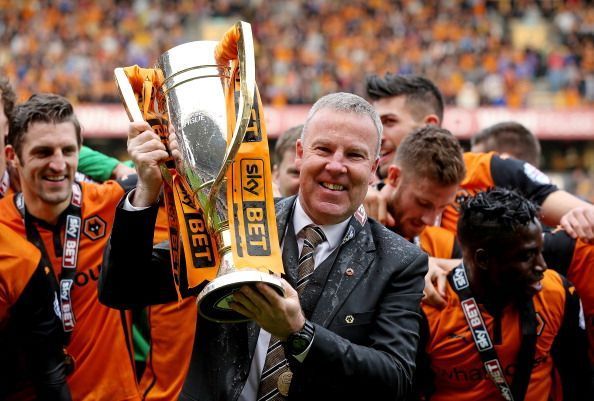
On July 21st, 2016, the sale of Wolves was confirmed – and the buyers identified as Chinese investment group Fosun International. Wolves became the second Midlands club – behind Aston Villa – to be bought out by Chinese investors, but in this case, things were a little different.
Initially, it looked like your usual somewhat trigger-happy foreign investment – Kenny Jackett’s position as manager was initially said to be secure, but he was quickly dispensed of prior to the beginning of the season and replaced by former Italy goalkeeper Walter Zenga. But behind the scenes, other issues were beginning to rumble.
The emergence of Mendes
It emerged soon after the takeover that a few months prior to Fosun’s purchase of Wolves, the investment company had purchased shares in another area – 20% of so-called ‘Super Agent’ Jorge Mendes’s Gestifute agency. This link immediately raised eyebrows, as the FA’s regulations state that “intermediary organisations shall not have an interest in a club”, and that a club “shall not have any interest in the business or affairs of an intermediary’s organisation.”
Despite this, Fosun were happy to bring in Mendes as an “advisor” to help with their transfer dealings, and instantly his impact was felt. Portuguese winger Ivan Cavaleiro was brought in from Monaco for a club-record fee of £7m, and two other Portuguese players – Helder Costa and Joao Teixeira – were brought in on loan from Benfica, with Costa eventually signing permanently in January 2017 for another record fee of £13m.
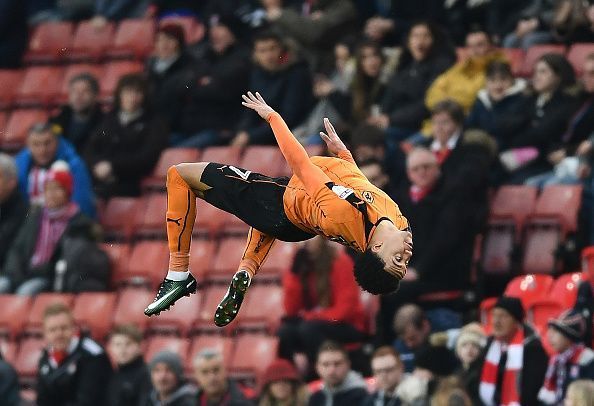
While the FA’s official list of intermediaries involved in the deals did not include Mendes, everyone involved had links back to his Gestifute organisation. But the FA remained happy with the takeover, and with Wolves struggling in the league – Zenga was fired after just 14 games with the club in 18th place and replacement Paul Lambert didn’t turn things around immediately – the situation largely flew under the radar.
Nuno arrives and leads the charge
Wolves eventually finished in 15th place, and unsurprisingly Lambert was relieved of his duties on May 30th 2017. His replacement? Portuguese manager Nuno Espirito Santo – a client of Jorge Mendes. And again, Wolves’ transfer activity in the summer of 2017 had the fingerprints of the super-agent all over it. No fewer than 7 Portuguese players arrived at the club, with defender Roderick Miranda coming from Rio Ave – another club with known links to Mendes, and Diogo Jota and Ruben Vinagre curiously coming in on loan from European giants Atletico Madrid and Monaco respectively.
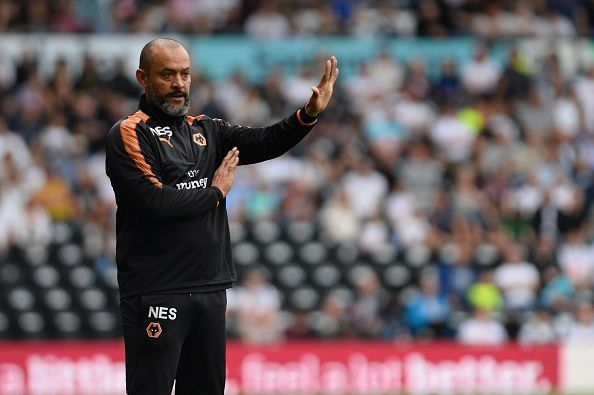
Most fascinating was the signing of Ruben Neves from Porto for a club record fee of just under £16m. Described by ESPN as a “classical Portuguese deep-lying midfielder, capable of dictating the passing tempo of his team”, Neves had risen to fame at Porto and in 2015, he’d become the youngest player to captain a side playing in the Champions League.
Prior to his move to Molineaux, Neves had apparently been linked with Chelsea and Liverpool. So why did he end up at Wolves? It came as no surprise to learn that his agent is none other than Jorge Mendes, of course.
And so unlike the previous season, Nuno’s new-look Wolves have taken the Championship by storm. Jota and another signing linked to Mendes – Brazilian forward Leo Bonatini – have scored 26 goals between them, while Neves has pulled the strings from midfield and has arguably been one of the league’s most impressive performers.
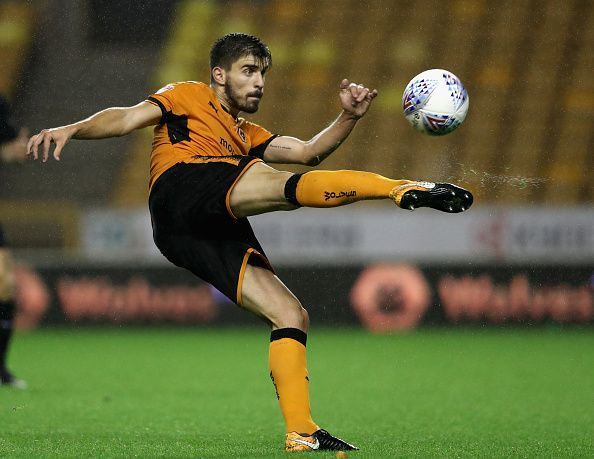
And due to their lofty position, the links between Wolves and Mendes have quickly become a point of contention for their rivals – the owners of Aston Villa, Derby County and Leeds United have openly complained about the Midlands club having an unfair advantage over the other clubs in the league.
But is this really the case? It’s hard to say. On the surface, surely Wolves are no different from any club who’ve received an injection of cash from new owners to buy flashy new players in order to rise up the leagues to success. After all, both Chelsea and Manchester City managed to gain their current positions largely because of big-money takeovers from Roman Abramovich and the Abu Dhabi group respectively.
Wolves have admitted that they’re close to breaching the Financial Fair Play rules – 2016/17 apparently saw them register losses of around £20m – but again, does this really make them any different to any other big-spending club who flies close to the sun and risks being burned?
The shop window?
The problem with Wolves though comes from the motivation behind the signings. Wolves fans might be enjoying their time at the top of the Championship and are probably looking forward to potential Premier League success thanks to the influence of Mendes, but whose best interests is the super-agent truly looking out for? The interests of Wolverhampton Wanderers, or the interests of his own Gestifute agency?
The fear for fans of the game is that Wolves are simply being used as a pawn in a larger game by Mendes – the theory being that he’s bringing in his clients or players with major links to his agency with the long-term plan being for them to star at Wolves and then be sold on to bigger European clubs for a large profit – which would potentially make millions for Mendes and his agency.
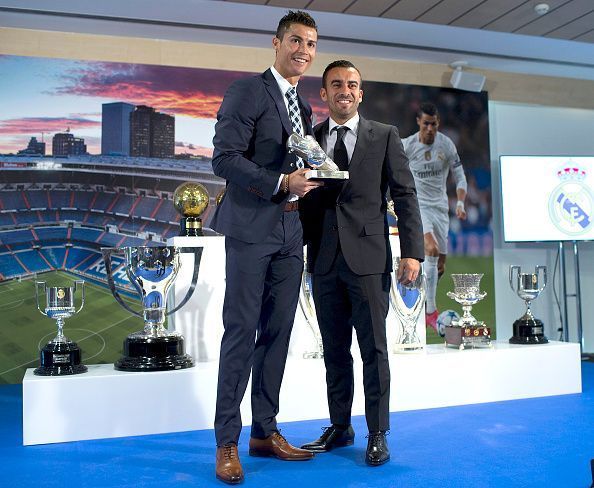
Essentially, this fear suggests that Wolves are being used by Mendes as nothing more than a shop window in which to display his prize clients – even manager Nuno could be seen as being “advertised” in this way, as after all, bigger clubs are always looking for new bosses and Nuno has done a tremendous job at Molineaux.
The reality is that we’ll probably only find out the truth in the summer, or perhaps the summer of 2019 once Wolves’ new season in the Premier League is over and done. If the likes of Neves and Costa stay at Molineaux to enjoy Premier League success, then perhaps the detractors can turn a blind eye and simply view Wolves in the same way as a Chelsea or City.
But if huge European clubs come in for those players – and if the likes of Jota and Bonatini return to their parent clubs and end up making big-money moves from there – then the fears of every analyst and fan concerned with the ever-increasing influence of ‘super-agents’ like Mendes will perhaps be recognised.
Only time will tell, but for now the Wolf Pack keep on rising.